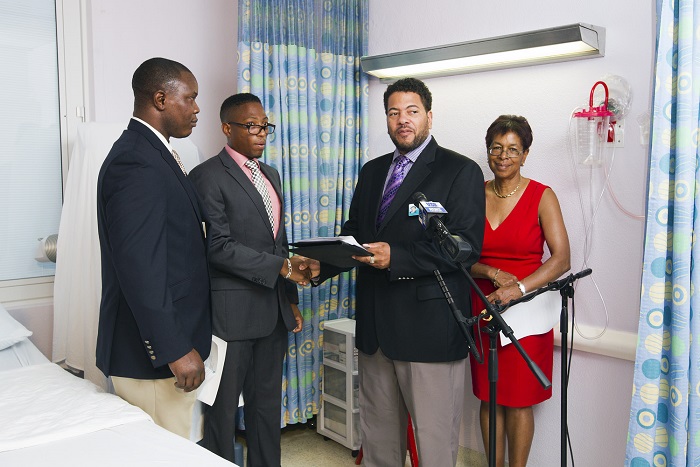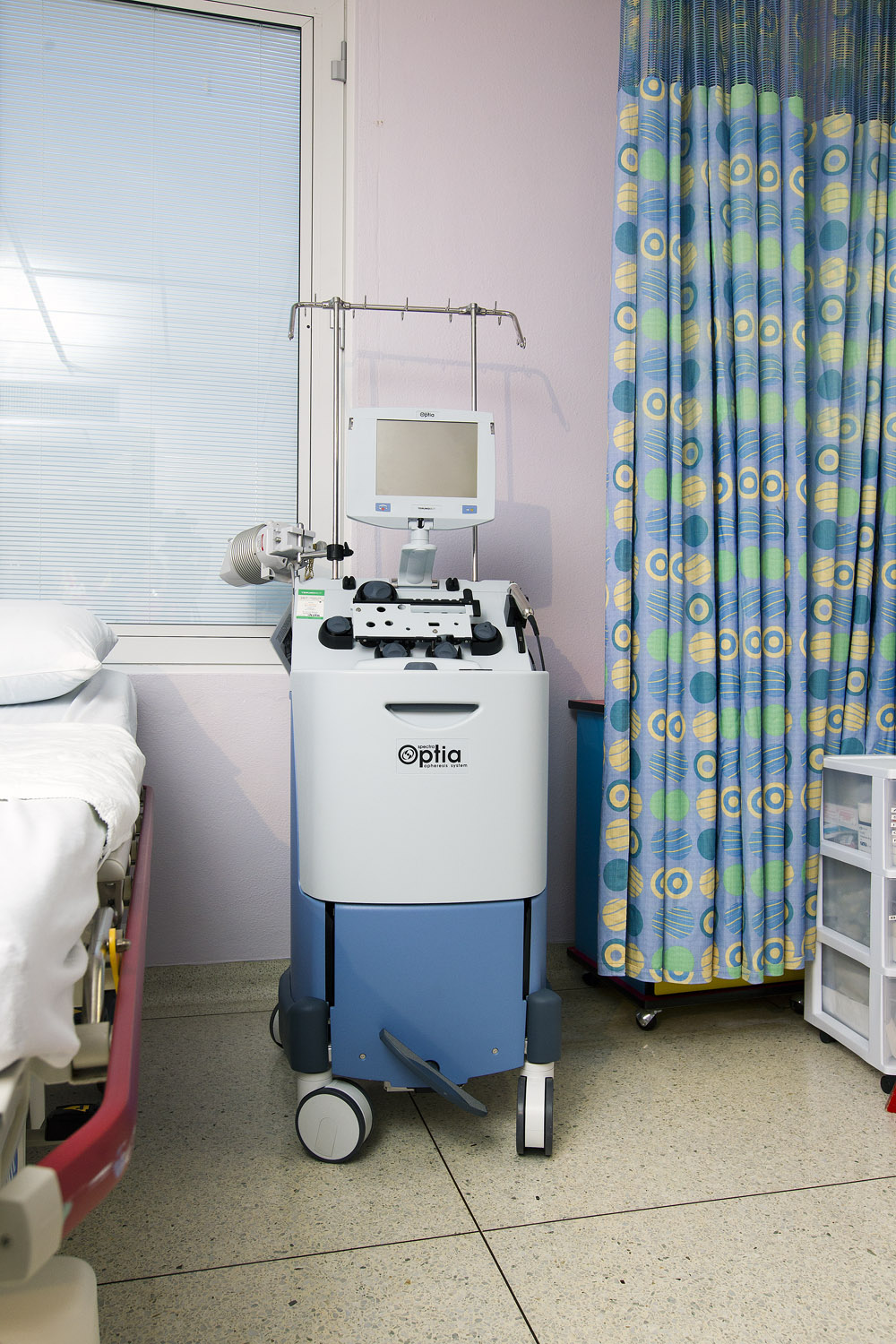BHB Launch Spectra Optia Therapeutic Machine
[Updated] The Bermuda Hospitals Board has launched service of the Spectra Optia therapeutic apheresis machine, with the BHB saying that Bermuda’s sickle cell patients are now better served thanks to the new machine which can extract and filter their blood.
It works in a four-stage simultaneous process:
- Blood is removed from the patient
- The specific blood component is extracted in the machine
- The required component is added to the blood
- The resultant blood is transfused back into the patient
The Bermuda Hospitals Board purchased the new machine with help from the Bermuda Sickle Cell Association.
“We recognize that this machine will significantly improve the lives of those of us living with sickle cell anemia, so we are very happy to pledge our support with a $25,000 donation” said Association Treasurer Adrian Warner.
“We were desperate to have the hospital offer this service and are still actively fundraising to meet our goal. Today we are presenting a $15,000 cheque to BHB and will present the remaining $10,000 at a later date.”
Update: Photo of Health Minister Jeanne Atherden, Dr. Eyitayo Fakunle Consultant Hematologist, Adrian Warner Treasurer of the Bermuda Sickle Cell Association, Scott Pearman BHB Chief Operating Officer at today’s announcement
“The Bermuda Hospitals Board is pleased to offer this treatment with the new machine,” said Chief Operating Officer Scott Pearman. “It represents our commitment to provide our community with the services that will improve their health and wellness.”
“The therapeutic apheresis machine can extract red blood cells, white blood cells, platelets or plasma and simultaneously replace the removed components with the required product when necessary,” said BHB Consultant Hematologist Dr Eyitayo Fakunle. “It’s a wonderful machine.”
Adrian Warner, Treasurer of the Bermuda Sickle Cell Association has the condition and said the machine has already improved his life. “It drastically reduces the amount of time a patient has to undergo transfusion,” he said.
“Usually it took 4 – 6 hours for a manual partial red cell exchange treatment, but with the new machine a full red cell exchange is finished in 90 minutes. This means a larger volume of my blood is being processed and so the number of treatments I require has been reduced. I used to come in once a month, but now it’s every 6 to 8 weeks.”
The new service also represents a cost savings over having to use extremely expensive medications to counter side effects like iron overload which in the long-term cause even more expensive damage to organs.
Update: Photo of the Apheresis machine:
“Other alternatives including top-up red cell transfusion, present the risk of iron overload, where the body gets too much iron. This can cause life threatening damage to internal organs, particularly the liver and heart,” said Dr Fakunle.
While those suffering with sickle cell anemia will likely be the bulk of patients that use the machine, it can also be used to treat other blood disorders.
As September is Sickle Cell Awareness Month, the Bermuda Sickle Cell Association has also provided Gosling Ward, [the ward where patients undergo the apheresis therapy], information packets on the condition to distribute to families of sickle cell sufferers.




